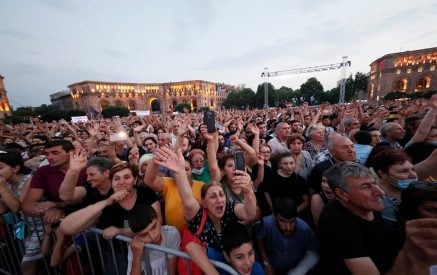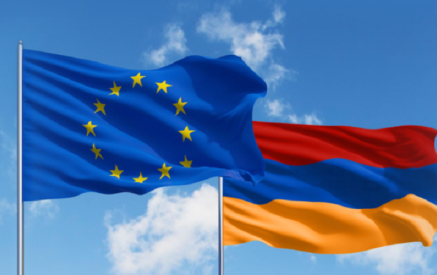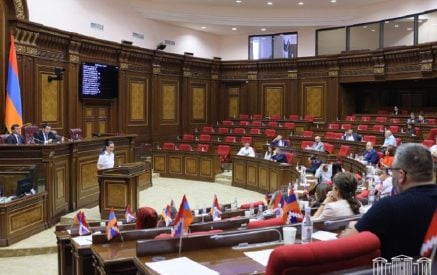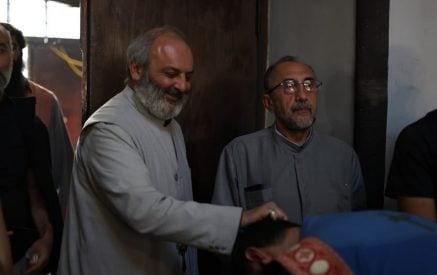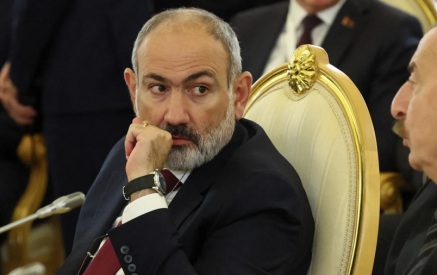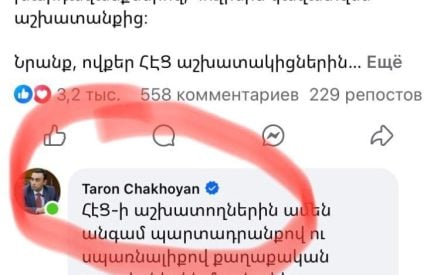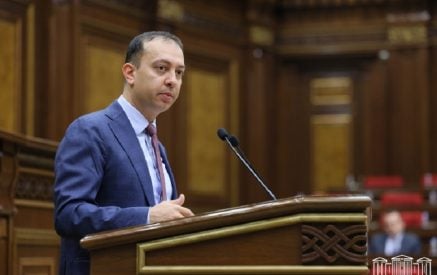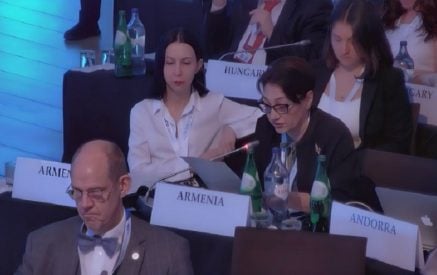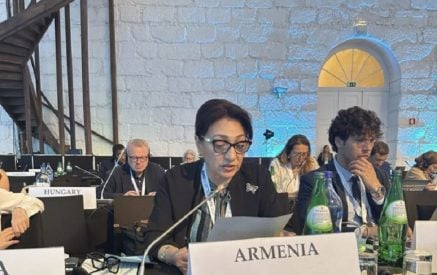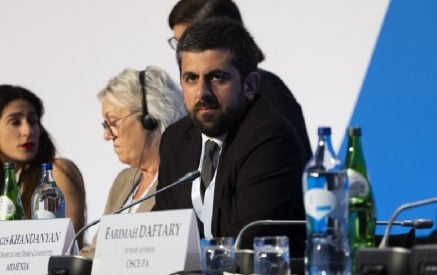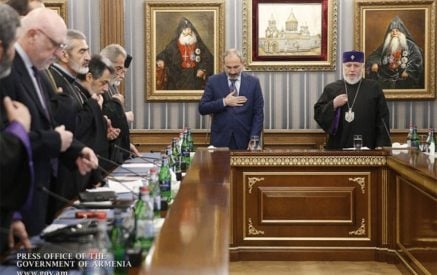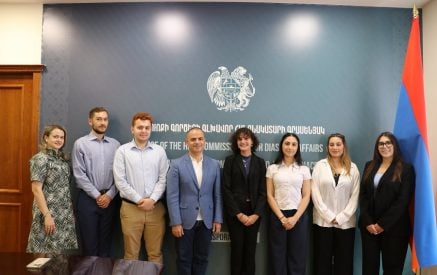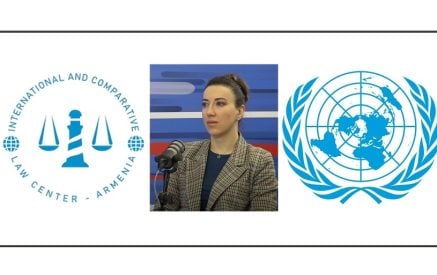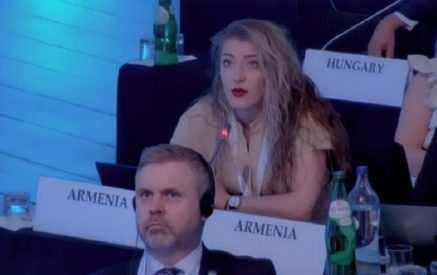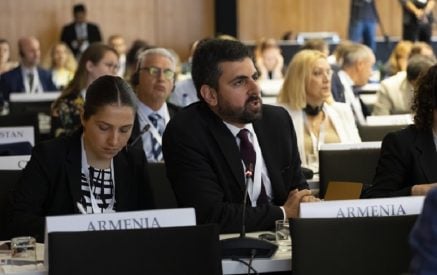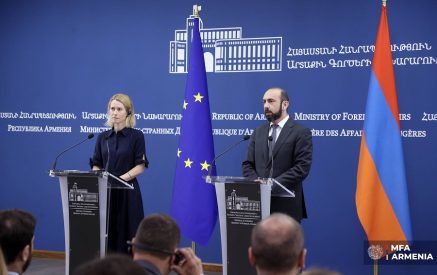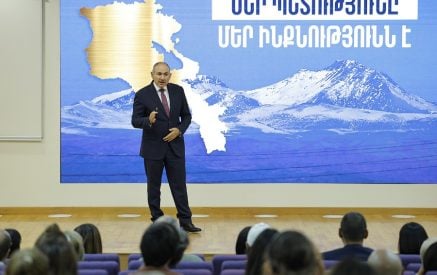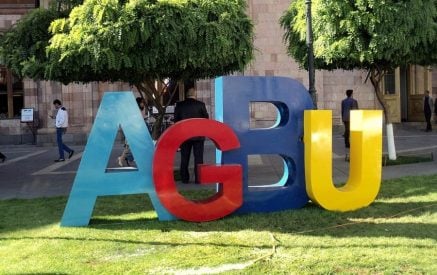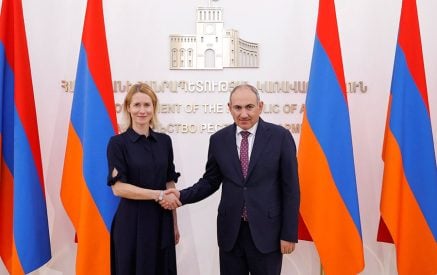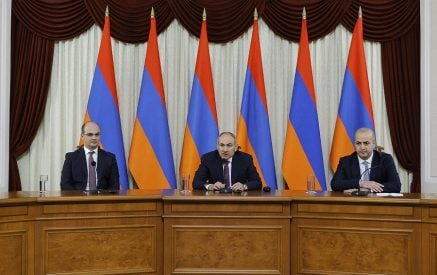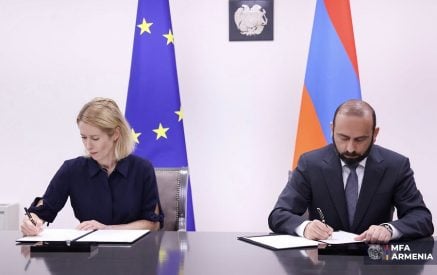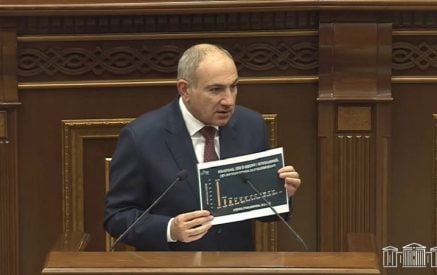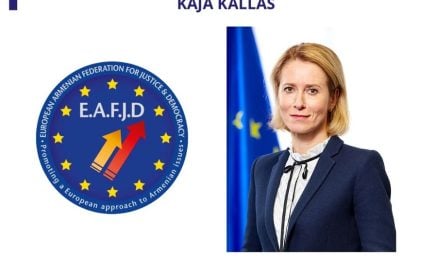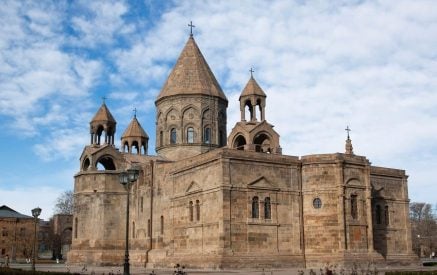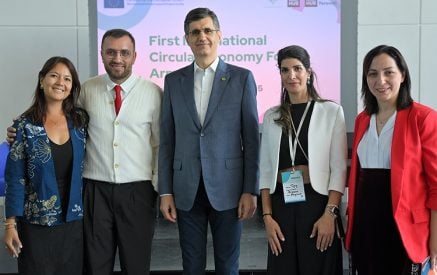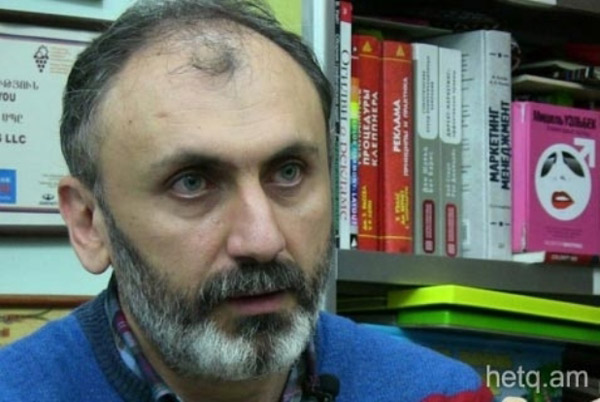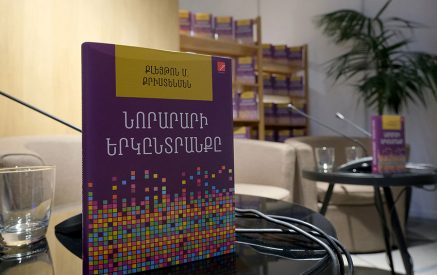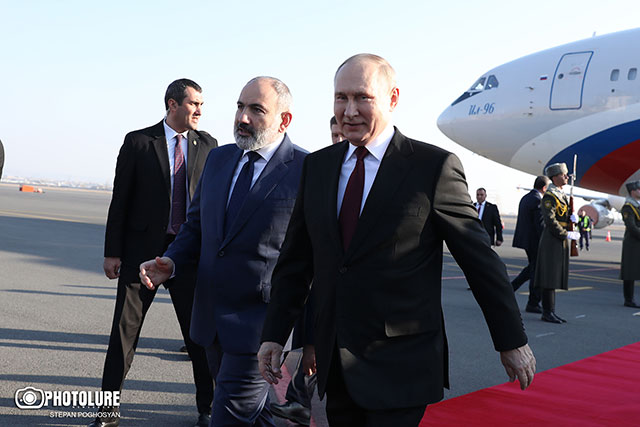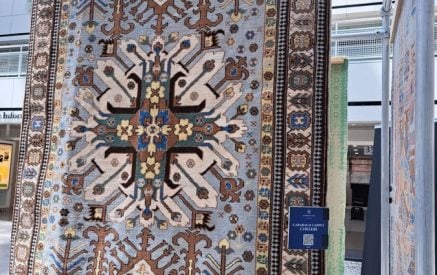Recipe proposed by a revolutionary publisher
“Antares” publishing house in Armenia is considered to be a revolutionary one, as it paves its way off the beaten track and takes up initiatives that seem unrealistic at first glance. Armen Martirosyan, the chief executive officer at “Antares” Media Holding, states that they have embarked on translating the best literary works to advance intellectual discourse in Armenia.
“We have not only published the highlights of the world literature in Armenian but have also shaped a possible candidate for Noble Prize. We have created all the conditions for Armenia to give birth to a writer who can send his message to the world. We might produce a philosopher in literary pursuit or a young bank worker considering having their literature endeavours published. At the same time, to complete this task we need readers. Let us consider the standards of a developed country. Germany, for instance, remained faithful to its legend about Baron Munchausen and could save itself from drowning as Baron once did by pulling his own hair upwards. The Germans succeed in delivering a great literature-based programme.” The publisher provides the impressive example of the country that despite its 24-hour work schedule lagged behind England until 1959. “In 1959, Germany launched national reading competitions in all educational institutions and in 1987 topped the list of exporting countries.”
Another example follows about China, whose authorities were concerned with the country’s economic progress and administered surveys among the founders of such leading corporations as Sony, Mitsubishi, Microsoft, etc.
Read also
“The questionnaire included more than 100 questions and the answers varied greatly with only one exception. Almost everybody gave the same answer to the question What did you read at a young age. The unanimous answer was science fiction. And what do we do in Armenia? It’s been ages since we started hosting reading competitions. In our country, we not only have to encourage people’s reading behaviours but also have society approve of it and not criticize. Our school competition winners are provided with free car insurance. Hence, we have six-graders resolving the problem of car or health insurance for their family, when other learners are not capable of the task. This makes the winner a hero in the eyes of his peers and makes them regard books as a means of becoming prosperous.
While Armenia cannot afford the resources to have a respective survey administered in Armenia, we publish the best pieces of science fiction in Armenian, establish the necessary institutions starting from bookstores, distribution network, literary agents, a foundation promoting Armenian literature, etc. Our efforts in this direction include the establishment of the first literary agency and Armenian literature promotion foundation. The foundation has already supported the publication of at least ten books by Armenian authors abroad. We were the first publishing house that paid for advertising books and reading on billboards. I do not wish to sound pompous but what we did was not a job of a publishing house but rather a reformer, and there are always people who oppose to reforms.” Armen Martirosyan says.
Inertia the main obstacle for a publisher
Mr. Martirosyan believes inertia to be the main impediment for Armenian publishers. The word owes its origin to Latin and means slothfulness. Humans are sluggish and inactive by nature and this is what gives birth to innovations. Take the TV remote control, for instance. “Antares” publishing house is well aware of this sluggish disposition and continues to cultivate its position as an outsider when its accomplishments exceed those of the institute of literature. “We have published a 15-volume set of works by Gourgen Mahary. In three years we have completed a volume of work that the institute of literature would do in 40 forty years. And you cannot imagine the bulk of the investments the state made in the Institute, when it did not have any contribution to the academic publication of a complete set of works by Gourgen Mahary. These are the things that make society wonder about the importance of such structures. I am not saying that we shouldn’t have institutes of literature, I am just saying that its system requires reforms. Now let’s turn our attention to the literary agency once headed by the present president of the Writers’ Union. Over decades, the agency published books procured by the government and supported by the state. Most of these books were destined to oblivion and did not even reach their readers. This can mean that the readers didn’t need them or that there were some issues preventing them from reaching their addressee. My personal opinion is that the key motivator here was money and the books were written solely for payment. This leaves us with a huge pile of junk paper, for the stock of which my co-citizens paid through taxes. The destruction of forests and the waste of efforts to import this paper to blockaded Armenia add to this.” My interviewee states that the fight against sloth and illiteracy tops their list of priorities and they don’t want the young people to inherit the Soviet past of their ancestors.
The absence of publishing law helps the publisher
The CEO of “Antares” Media Holding thanks God for the absence of any publishing laws in Armenia. There have been attempts, though, to write laws in return for grants but in vain. “Our criminal code clearly states that books promoting fascism or pornography cannot be published. The country’s constitution states that any kind of censorship is banned in Armenia, when in fact the amount of censorship and control is huge here. True, anyone in Armenia can voice their opinion in speech or writing but issues arise when it comes to circulation or reaching larger audiences. TV will never air what you have filmed, it won’t voice your personal opinion. The broadcast might be formally aired on a small channel just to prove the European structures that there is no censorship in Armenia.”
Armen Martirosyan confesses that as a publisher there have been attempts of exerting pressure on him. He has been warned by law enforcement bodies not to publish opposition campaign brochures. But he thinks there is more to that. As the classics would put it, the inert atmosphere dominating in Armenia impedes with people’s reading habits. ‘I can publish anything but everything is being done for the reader not to appreciate my efforts. Since the clashes of March 1 2008[1], Armenia has been going through the times of apathy and indecision. People feel too desperate and exhausted to fight. The press might raise these issues but there is no light at the end of the tunnel. In this climate, one can hardly experience any urge to read”.
Routine and reading culture
When speaking about reading culture in Armenia, Nerses Ter-Vardanyan, Deputy Minister of Culture, traces the problem of reading back to people’s habits. Reading culture can be bred even in the simplest routine, where hobbies can alternate or follow each other.
“Reading habits should be developed up to a certain standard, which will guarantee book sales. Books should become a part of citizen’s everyday life. This is the benchmark we aim for and both the state and the private sector should help us to reach it. One can always argue over the relevance of the policies and priorities. At the same time, books should be the prime focus for literary and cultural events and programmers. Reading should become a type of entertainment to be relished in any place and time space. If the number of readers on public transport abroad exceeds the number of readers in Armenia, we should take the necessary steps to welcome books into our lives.”
Mr. Ter-Vardanyan believes that making reading fashionable is not sufficient for increasing the rating of books. What is important here is improving the quality of published literature and translated works.
The Deputy Minister says that the “publisher-writer-reader” chain can sometimes be breached and the cooperation between these three parties should be closer. The market still retains traces of the Soviet past and needs developing.
“The state policy in the field of publishing has entered a stage of transition. If in the past we would support the publication of contemporary literature, now we should seek to create an atmosphere for the publisher to find writers and publish their works without the support of the Ministry of Culture. Writers also need to be promoted. We often deal with writes who have had 10-15 books published but remain unknown to the public and it is not a matter of good or poor quality of writing.”
My interviewee mentions that the programmes for extending authors opportunities to present their works to the attention of the reader and publishers are in progress. “ Most countries take pride in their publishing industry. The market niche abroad is much larger for English or foreign literature and so is the number of readers. This leads to an increase in circulation, which affects the price making it lower and boosts the sales. We can’t blame our publishers for setting a high price for books because they face a tough competition with the publishers of Russian or English literature imported to the Armenian market.”
Nerses Ter-Vardanyan believes that the publishers need to have their views and opinions reshaped and regard the things from diverse perspectives, as they tend to expect the state to share some of their responsibilities. “A sober look at the model reveals that it needs to be revisited, which in its turn entails risks. This means that writers might not have their works published as frequently as they used to do in the past. At the same time, their cooperation with publishers will enter a new stage, publishers will use new methods to assess writers’ work and new rules and regulations will govern the market.”
Gohar HAKOBYAN
[1] A series of mass protests were held in Armenia in the wake of Armenian presidential elections involving the police officers and demonstrators. As a result 10 people were killed and 200 were injured.



